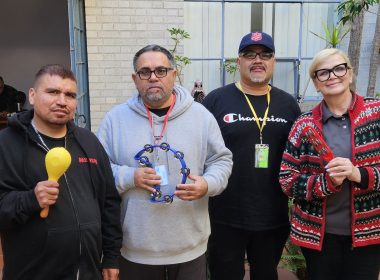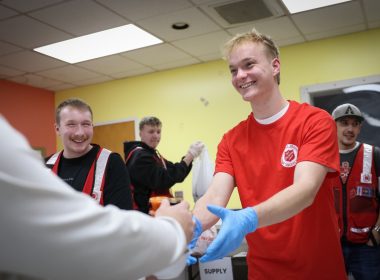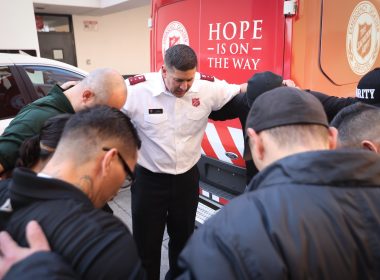In Process
by

If there was one lesson brought home to me more emphatically than any other when I was a child, it was the great respect in which we kids were taught to hold our elders—the older the person, the greater the deference. Consequently, when one day in our country church, the males and females were separated—the women filing off to one room, the men to another (my father and I among them)—I was bewildered. Only six years old, I was unaccustomed to being included with the adults. There were only two or three of us small boys in the group of 15 or 20 males.
Agog, I watched in awe as a man took a pan of water and a washcloth, stooped and removed the shoes of another man and began systematically washing his feet. When he finished, he dried the feet with a towel. Then the men reversed roles—the man whose feet had been washed now knelt and washed the feet of the other. As the pan was passed along, the others did likewise. I was mesmerized, having no clue to what was going on. I was too young to grasp the teaching of the gospel account in John 13 of Christ washing his disciples’ feet. I simply knew that these men were doing an astonishing thing.
Then occurred the most wonderful thing of all. A man in his eighties slowly got down upon his knees in front of me, then peered directly into my face. With a twinkle in his eyes, he smiled. Seeing my confusion, he remarked pleasantly, “How are you, son?”
Wide-eyed and befuddled, I nodded, I think—I don’t recall for sure, but what I do remember is my amazement, for my world had been flipped upside down. The elderly gentleman, whom I held in the highest regard, gently removed my shoes and socks. “What are you doing?” I queried.
“I’m going to wash your feet,” he said, “like Jesus washed his disciples’ feet the way the preacher described.”
“Are my feet dirty?”
He grinned. “No. No. They’re not dirty. It’s just a custom we practice. I’m washing your feet to show how much I care for you, just as Jesus washed his disciples’ feet to show how much he cared for them and to show his humility. Likewise we demonstrate our humility—one toward another.”
“Oh,” I said, though now I was more confused than ever—I still didn’t understand. The elderly gentleman rubbed the dampened rag gingerly over my ankles and feet, took a towel and thoroughly dried them, then gently replaced my socks and shoes.
The wonder I felt as I watched this extraordinary event unfold before me was deeply engrained upon my mind. It was a complete reversal of roles as I had come to understand them. Consequently, I was fated to digest the marvel of this experience for many years to come: one day an old man knelt to wash a little boy’s feet.
When decades later I watched Salvation Army soldiers and officers don aprons to serve food to the down and out and kneel to pray with alcoholics and addicts, the memory floated back to me—I finally got the point: just as Christ “did not come to be served, but to serve” (Mark 10:45 NIV), so we are called to do likewise. As Christ serves us, so we must serve one another for “no servant is greater than his master” (John 13:16 NIV).
These humble farmers ultimately set the pattern for my life. Beneath a thick veneer of selfishness (which would rule me for decades) lay dormant a secret, yet very real, acknowledgment that primarily serving “number one” is a vain and pointless endeavor. Only through service to others in the name of the true God would I find the elusive treasure I so avidly sought (Matthew 10:42).









